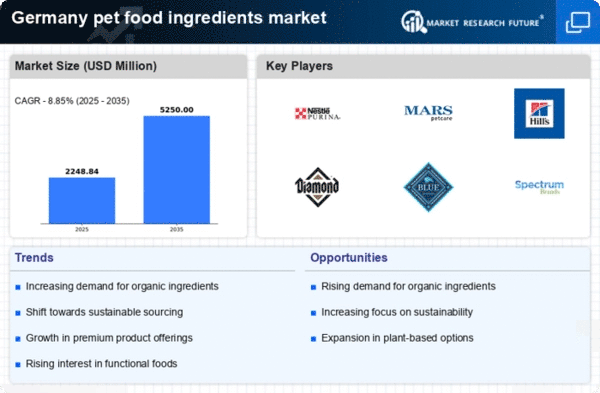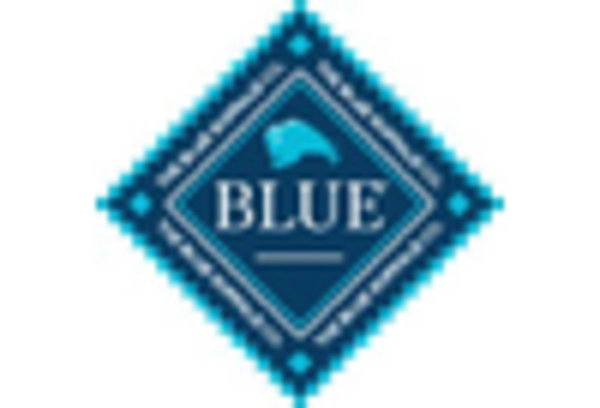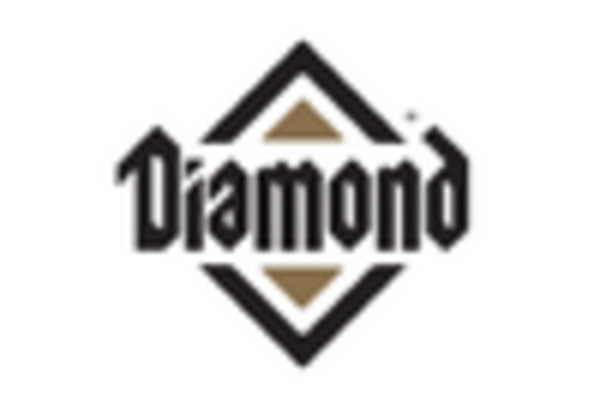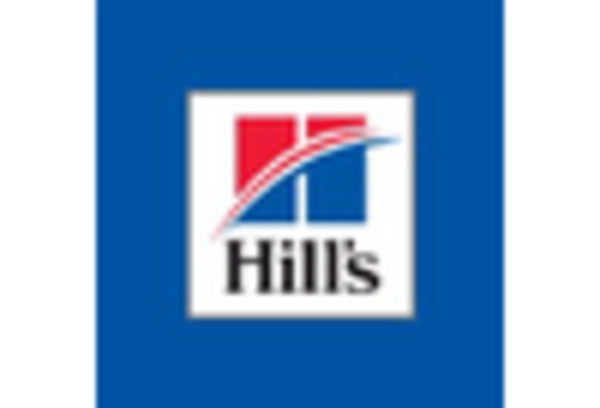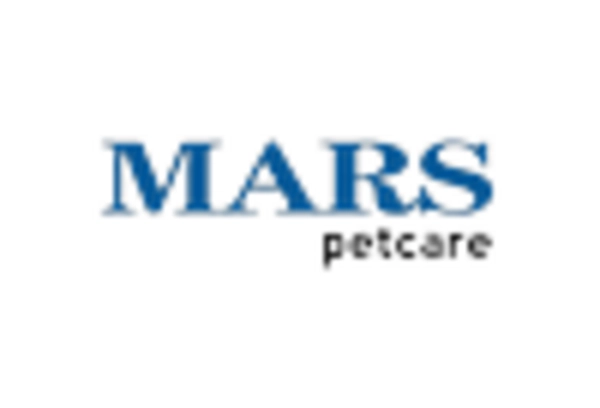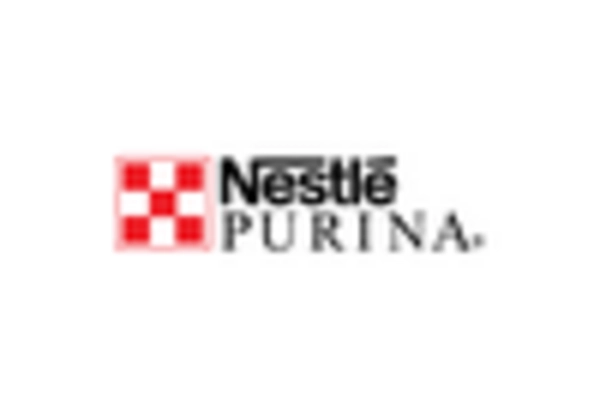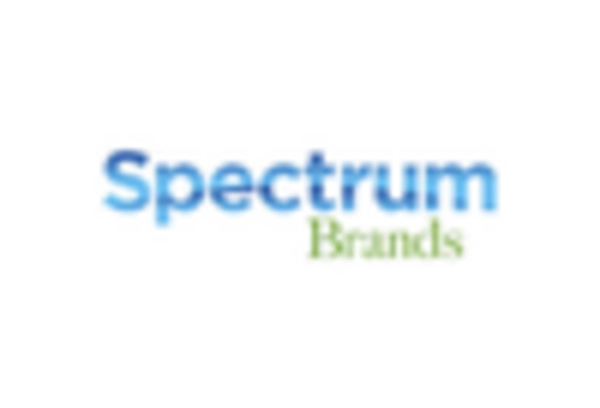Health and Wellness Trends
The growing emphasis on health and wellness among pet owners significantly impacts the pet food-ingredients market in Germany. Consumers are increasingly seeking products that promote the well-being of their pets, leading to a demand for functional ingredients that offer health benefits. For instance, ingredients rich in omega-3 fatty acids, probiotics, and antioxidants are gaining popularity. Market data indicates that the segment of pet food products marketed as 'natural' or 'healthy' has seen a growth rate of around 15% annually. This trend compels manufacturers to innovate and incorporate health-oriented ingredients into their formulations, thereby shaping the competitive landscape of the pet food-ingredients market.
Rising Pet Ownership Rates
The pet food-ingredients market in Germany experiences a notable boost due to the increasing rates of pet ownership. Recent statistics indicate that approximately 50% of households in Germany own at least one pet, with dogs and cats being the most common. This surge in pet ownership correlates with a heightened demand for quality pet food, which in turn drives the need for diverse and nutritious ingredients. As pet owners become more discerning about their pets' diets, The market for premium ingredients is likely to expand. Manufacturers must adapt their offerings to meet the evolving preferences of pet owners. This adaptation will influence the overall dynamics of the pet food-ingredients market in Germany.
Evolving Consumer Preferences
Consumer preferences in Germany are shifting towards more specialized and tailored pet food products, which is a crucial driver for the pet food-ingredients market. Pet owners are increasingly interested in customized diets that cater to specific health needs, such as grain-free or hypoallergenic options. This evolution in consumer behavior suggests that ingredient suppliers must diversify their offerings to include a wider range of specialized components. The market for premium and niche ingredients is projected to grow, as consumers are willing to invest more in high-quality products that align with their pets' dietary requirements. This shift indicates a potential for innovation and differentiation within the pet food-ingredients market.
Regulatory Standards and Compliance
The pet food-ingredients market in Germany is significantly influenced by stringent regulatory standards and compliance requirements. The European Union has established comprehensive regulations governing the safety and quality of pet food ingredients, which necessitates that manufacturers adhere to these guidelines. Compliance with these regulations not only ensures the safety of pet food products but also enhances consumer trust. As a result, ingredient suppliers must invest in quality assurance and traceability measures to meet these standards. This regulatory landscape may pose challenges for smaller manufacturers but also presents opportunities for those who can demonstrate compliance and quality, thereby impacting the overall dynamics of the pet food-ingredients market.
Technological Advancements in Ingredient Processing
Technological advancements in ingredient processing are reshaping the pet food-ingredients market in Germany. Innovations in food technology, such as extrusion and freeze-drying, allow for the development of high-quality ingredients that retain nutritional value while enhancing shelf life. These advancements enable manufacturers to create more appealing and nutritious products, catering to the evolving demands of pet owners. Furthermore, the integration of technology in ingredient sourcing and processing can lead to cost efficiencies, which may benefit both producers and consumers. As these technologies continue to evolve, they are likely to play a pivotal role in shaping the future landscape of the pet food-ingredients market.


